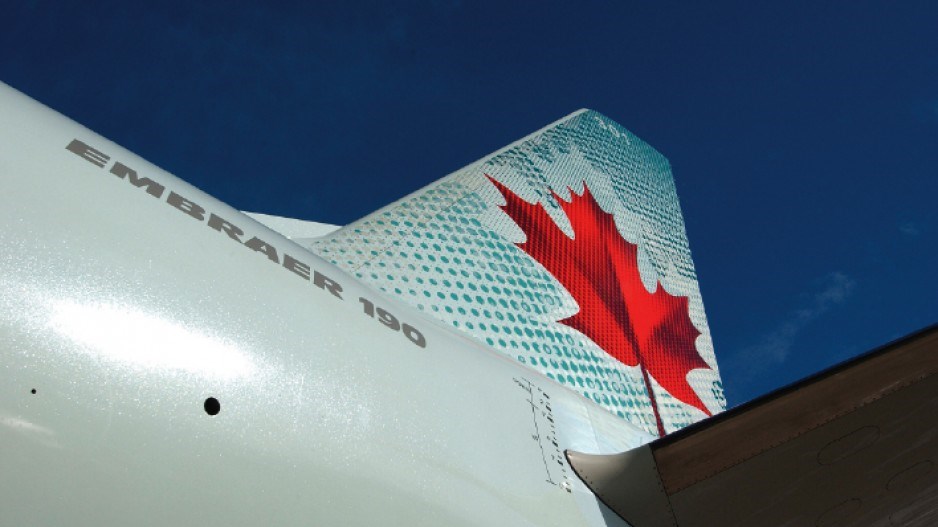Air Canada’s (TSX:AC.B) plan to improve compensation for passengers who are delayed or bumped from flights has done little to quell calls for Ottawa to draft a law governing airline passengers’ rights.
Its proposal, which would kick in November 1, is less than what would be required in Europe or the U.S.
“We want legislation similar to what has existed in Europe for the past 10 years,” Consumers’ Association of Canada president Bruce Cran told Business in Vancouver July 2.
“The Canadian law would cover all sorts of things and penalties as well. Right now we have no protection for passengers.”
The U.S. has continued to increase protection for passengers since it first issued regulations in 2009.
The US Department of Transportation now requires passengers who are involuntarily bumped from flights to be refunded:
•double the price of their one-way ticket, up to US$650, for delays to their destination arrival of between one and two hours;
•four times the price of the ticket, up to US$1,300, for domestic flight delays longer than two hours; and
•four times the price of the ticket, up to US$1,300, for international flight delays longer than four hours.
U.S. rules ban airlines operating domestic flights from keeping planes filled with passengers on airport tarmacs for more than three hours, with exceptions for safety, security and air traffic control related-reasons.
Air Canada currently offers a maximum of $100 or a $200 travel voucher to passengers inconvenienced by unspecified delays. But in late May the Canada Transportation Agency (CTA) deemed that compensation to be “unreasonable.”
The regulator gave the airline 30 days to respond with a reasonable proposal. On June 28, Air Canada consequently proposed that it compensate passengers:
•$100 or a $150 voucher for delays of up to one hour;
•the value of a one-way flight, no less than $100 and up to $400 or a $400 travel voucher, for delays of up to six hours; and
•twice the value of a one-way flight, no less than $100 and no more than $800 or an $800 travel voucher, for delays of more than six hours.
“Air Canada submits that the [CTA] should adopt its own regime as opposed to mimic the [stricter] U.S. regime,” Air Canada counsel Julianna Fox wrote in a letter to the CTA.
The CTA’s May ruling exclusively affected Air Canada because the decision came in response to a specific complaint against the airline and its practice of overbooking flights.
Air Canada passengers affected by overbooking are given more flexibility to change flights and offered the opportunity to pay with points to upgrade to business class. If a flight remains overbooked, passengers are bumped.
WestJet (TSX:WJA) claims that it doesn’t overbook flights or bump passengers because it has stiffer penalties for changing flights.
But Cran said WestJet could change that policy at any time and that a legislated passenger bill of rights would keep the CTA from having to make judgments on the fly. For example, the CTA said in June that the Calgary-based airline must provide compensation to customers who are denied boarding on flights to and from Canada. That judgment came in response to a complaint alleging that WestJet’s international tariff, which is a contract between a customer and the airline, has several “unreasonable and conflicting” rules for customers who are denied boarding.
It also ordered WestJet to revise its rules for international travel.




